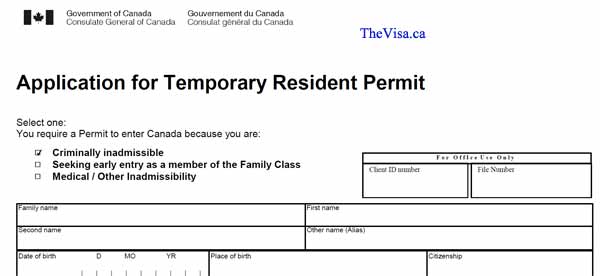Entering Canada with OUI
OUI, or Operating Under the Influence, is a drunk driving charge used in several states. The key difference between an OUI and a DUI is what constitutes "operating a vehicle". Let's say a driver is found parked on the side of the road and is under the influence of alcohol. If he or she is sitting in the driver's seat and the keys are in the ignition, he or she could be charged with an OUI, despite not actually driving the vehicle while under the influence. The legal limit for this charge is a blood alcohol concentration (BAC) of .08% or higher. In addition, this charge may include offenders under the influence of narcotics or other intoxicants.
If you are planning to travel to Canada, be aware that under Canada's Criminal Code an OUI is treated as an indictable offense and will make you criminally inadmissible. In this case, you will need to apply for special permission to enter Canada. This can be done in one of two ways: applying for a Temporary Resident Permit (TRP) or applying for Criminal Rehabilitation. A TRP will be processed fairly quickly and can allow you to enter Canada for a limited period of time if you have a valid reason to cross the border. However, the longer to process Criminal Rehabilitation will permanently remove your criminal inadmissibility and allow you to travel to Canada like other American citizens.
Contact our team of experienced Canadian immigration lawyers and consultants today to explore your options for entering Canada with an OUI arrest or conviction.
Getting an OUI in Massachusetts
The penalties for an OUI conviction in Massachusetts are determined by the number of subsequent offences on record. The ranges of typical penalties are as follows:
1st offense OUI
Driver's license suspension of up to 1 year
Large fines
Up to 2 and a half years of incarceration
In some cases, it is possible to qualify for something called a "24D" disposition, which originates from statute 90-24D. This will be offered as an alternative to the penalties described above and most importantly, can reduce all penalties significantly. If you qualify, you will be enrolled in the First Offender Driver Alcohol Education Program and be required to participate in 32 hours of group meetings, attend self-help groups, and attend a victim impact presentation with speakers from Mothers Against Drunk Driving (MADD).
Massachusetts also has special legislation for 1st time offenders who refuse a breathalyzer test. This is called "Melanie's Law" and the penalty for breaking this law is a 180 day license suspension. However, you may still be given the option of a 24D disposition.
2nd offense OUI
Driver's license suspension of up to 2 years
Fines
From 30 days to 2 and a half years of jail time
Mandatory installation of an Ignition Interlock Device (IID) on offender's vehicle
For a second offense, you may be offered a disposition program which includes completion of state licensed alcohol treatment program.
3rd offense (or higher) OUI
Driver's license suspension of up to 8 years
Substantial incarceration period in a state prison
Getting an OUI in Maine
Maine has comparatively harsh penalties for an OUI conviction. Upon arrest, the Maine Secretary of State suspends your driver's license. The state also employs a zero tolerance law for underage OUI charges. Any offender under 21 years of age who is tested with a blood alcohol content (BAC) of .01% or higher will be charged.
Like Melanie's Law in Massachusetts, Maine has specific charges for refusing a breath, blood, or urine test.
If you are planning to travel to Canada with an OUI, contact us today for a consultation. Our team of experts (Lawyers and consultants) can help determine the best steps to take in overcoming your inadmissibility.

